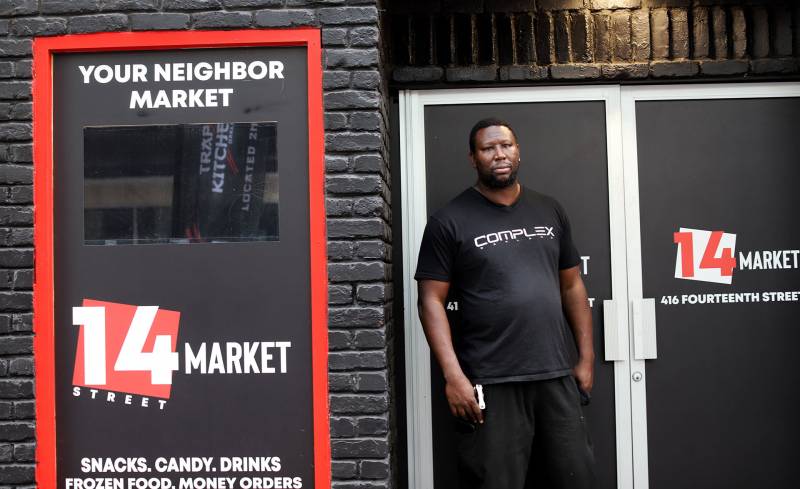An episode of Hip-Hop Uncovered about Nipsey Hussle plays in Complex’s Trap Kitchen restaurant on a recent Tuesday afternoon while owner Oscar Edwards meets downstairs with a worker-owner of the Mandela Grocery Cooperative. Edwards is getting ready to open a small market in the space next door to his downtown Oakland nightclub, partly inspired by Mandela and its introduction of healthy, affordable options to its West Oakland neighborhood. Instead of treating each other as competitors, the small business owners recognize that now is the time for Black entrepreneurs to lift each other up—much like the community-focused strategy that Hussle describes on the TV screen.
“Most grocery stores are not owned by people of color. We frequent them a lot and spend our dollars there, but it’s not owned by us,” Edwards says. “So my whole thing is to bring that ownership back around so that the dollar circulates and we keep investing into our community.”
Edwards’ new 14th Street Market promises to bring some life back to a city center that has been devastated by the pandemic, with numerous bars, restaurants and music venues either permanently closed or sitting empty until it’s safe to reopen. The idea came to Edwards last June, when he realized that hip-hop concerts in his large, antique ballroom would be on hold indefinitely after taking up most of his attention for the last 10 years.


